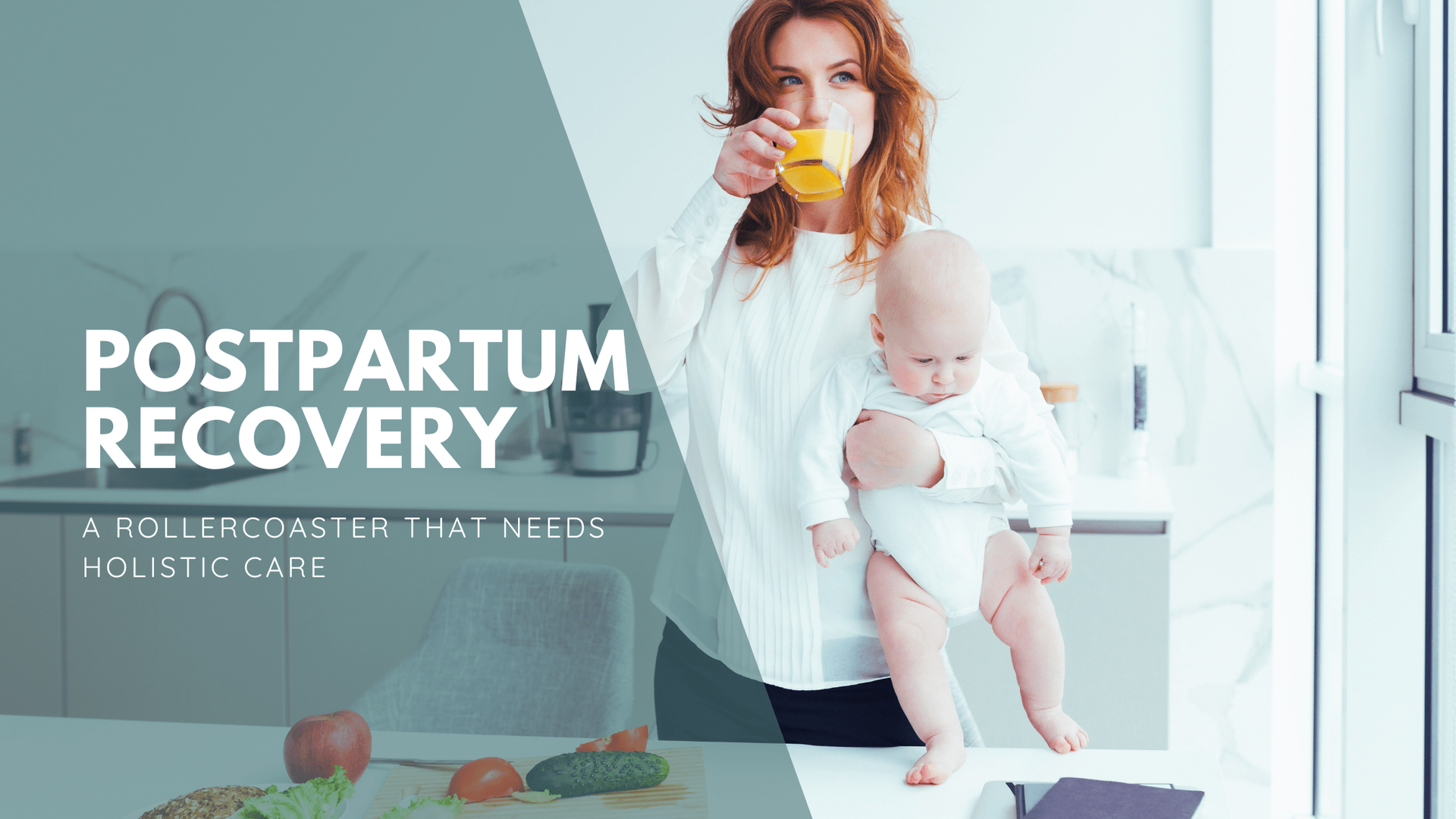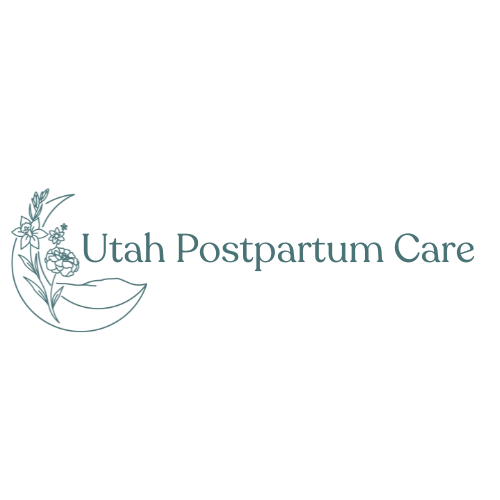Postpartum Recovery: A Rollercoaster That Needs Holistic Care
A Functional Medicine Approach to Postpartum

Hey there, I’m Rachel, and I am not a mom yet, but hear me out. I work with a lot of moms and know a lot about the hormonal changes that happen in the body through postpartum.
There is nothing quite like the postpartum. Hormonal shifts, sleep deprivation, and a full identity change, all in one intense phase. Whether it’s your first or fourth child, this stage can feel like a rollercoaster that no one really prepares you for. And yet, it’s often the season where women are expected to "bounce back" the fastest and ask for the least amount of support.
Honestly, though, postpartum recovery is not just about getting your body back. It’s about rebuilding your health. From a functional medicine perspective, postpartum isn’t a 6-week window; it’s a year (or more) of intentional recalibration. Your hormones, gut health, metabolism, thyroid function, and mental health all go through massive changes. And when we honor that, the body has a much better chance of healing in a way that is sustainable, grounded, and whole.
Understanding the Functional Shifts in the Postpartum Body
From the moment your placenta is delivered, your body begins one of the most profound physiological resets. Estrogen and progesterone levels reduce, cortisol regulation shifts, thyroid function can become unstable, and nutrient depletion is incredibly common, especially if breastfeeding. Your liver, gut, adrenal glands, and even your circadian rhythm are suddenly playing by new rules.
This is also a time when many women begin to experience symptoms they’ve never had before: hair loss, anxiety, blood sugar swings, constipation, or fatigue that feels debilitating. While some of this is "normal," it’s not necessarily optimal. In functional medicine, we look at these symptoms as signals from the body to help us guide healing.
Postpartum Labs Worth Exploring
Functional lab testing can be incredibly helpful in this season, especially if you feel "off" but don’t have a clear diagnosis. Some helpful tests might include:
- Thyroid panel (including TSH, Free T3, Free T4, Reverse T3, and antibodies)
- Nutrient testing (Vitamin D, iron/ferritin, B12, magnesium, zinc)
- Cortisol rhythm or DUTCH test (to assess adrenal function, but not until at least 6 months postpartum)
- Comprehensive stool test (to assess gut health and inflammation)
- Metabolic panel (blood sugar regulation and liver function)
Testing isn't about finding something wrong; it's about understanding what's going on
under the surface.
There’s no one-size-fits-all protocol, but in general, postpartum women benefit from anti-inflammatory foods and targeted support to replenish lost nutrients.
Key nutrition goals during this season:
- Replenish minerals and micronutrients
- Stabilize blood sugar
- Support gut repair (especially after antibiotics or C-section)
- Encourage gentle detox pathways
Some nutrients that often need attention:
- Magnesium (for sleep, mood, and hormone regulation)
- Iron and B12 (especially if anemic or plant-based)
- Vitamin D + K2 (for mood and immune health)
- Omega-3s (for inflammation and brain health)
- Protein + healthy fats to keep blood sugar balanced
Supplement protocols should always be personalized, but starting with a high-quality prenatal or postpartum multivitamin, magnesium glycinate, and a gentle adaptogen (if breastfeeding-safe) can often make a meaningful difference.
The Role of the Nervous System + Adrenal Support
Let’s not ignore the giant elephant in the postpartum room: stress.
Cortisol dysregulation is extremely common, and when left unaddressed, it can cause burnout, anxiety, or autoimmune issues later on.
This is where we slow down and start building in small, sustainable tools that help regulate the nervous system. That might include:
- Circadian rhythm support (morning sunlight, consistent meals)
- Mindful breathwork or grounding practices
- Strategic rest (even 10-15 minutes matters)
- Adaptogens like ashwagandha or rhodiola (with professional guidance)
You don’t need a 2-hour morning routine to regulate your nervous system. But you
do need intentional pauses.
Why Health Coaching Matters in Postpartum
Here’s where a health coach can make all the difference. While your doctor might check in for 15 minutes at your 6-week appointment, a health coach walks alongside you for the
whole journey.
Coaching offers:
- A safe space to process the emotional rollercoaster of postpartum
- Accountability and structure around your health goals
- Education and guidance on functional nutrition, supplements, and lab results
- Permission to go at your own pace and change the plan as needed
Postpartum is not linear. Some weeks feel like progress. Some feel like regression. Having someone in your corner to normalize the ups and downs can be the difference between surviving and
actually healing.
But anyway…
Postpartum is not just healing from blood loss or a C-section. It deserves more support than a "good luck and take some Tylenol."
If you're curious about what functional medicine support could look like in your postpartum journey, explore your options! I am happy to help in any way I can.
About Rachel Claire

Rachel is a functional medicine and holistic health coach who partners with a network of clinicians to provide lab testing, treatment plans, supplement protocols, and health coaching to those struggling with thyroid conditions, gastrointestinal problems, hormone concerns, and autoimmune conditions.
https://www.rachelclairehhc.com/
385-425-5794











